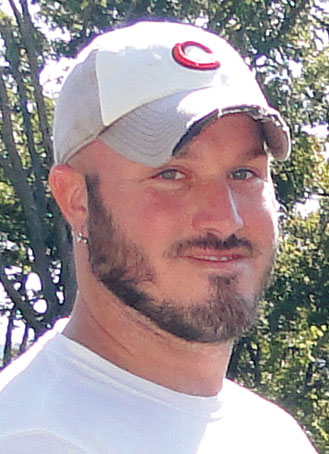
Ponker Farm is moving to Dutch Spotted Sheep
HARDIN, ARK. – When Kelli Otting first moved to Arkansas, she quickly detected a problem. When she and her fellow property owners surveyed their new 16 acres of land in Hardy, they realized they were going to have to be responsible for keeping the grass cut.
“It was some nice pastures, but it really needed a lot of improvement,” Kelli said. “The neighbors recommended we buy some sheep to put out there to keep the grass down. And that was it; that was the beginning.”
From that simple lawn maintenance suggestion sprang forth Ponker Farm in 2015. Located on the top of an Ozark Mountain in North Central Arkansas, the farm is home to a variety of sheep under Kelli’s care and watchful eye.

“The rewarding part is introducing my grandchildren to the cycle of life we do,” Kelli said. “We have a pair of turkeys, we have ducks and chickens, and they come and they look at the sheep and they can touch them. We keep our sheep all very, very friendly so we never have anything on the property that’s dangerous.”
Ponker Farm has raised Texel crosses and Finnsheep for the past nine years. But 2024 will be Ponker’s last main herd of Finn after making the move to focus on Dutch Spotted Sheep.
“We decided to transition to Dutch Spotted Sheep,” Kelli said. “During my career, I spent some time working in Europe, and the Dutch Spotted Sheep looked interesting when I saw them. At first, back in 2021, we thought, well, let’s look into importing some Siemens from the UK. And we went through that process. Unfortunately, at that time, the ram that we were using was determined to be non-viable. And then it was another year of waiting. But during that year we found that the embryo imports had opened up, so we switched tracks and decided to import embryos instead.”
At the same time, Kelli and a friend started the Dutch Spotted Sheep Society of the US. The 501(C) makes sure that the sheep are of good quality and registered as they come into the United States and are part of their breeder society.
That seemed to seal Kelli’s decision and Ponker Farm began to focus on Dutch Spotted Sheep.
“During the time I was raising Finn, I started crossing my Finn with a Texel ram, which is a similar body type through the Dutch Spotted,” Kelli said. “In the United States, Texels are white and Finn sheets are multicolored and beautiful. I love the body type of the Texel. We also do quite a good meat business. We sell quite a few lambs, and the Texel brought into the Finns through crossing increased growth and bigger products sooner. So it made economic sense to continue crossing for our meat production.”
However, that doesn’t mean Ponker Farm will only have the Dutch Spotted variety. According to Kelli, they will continue to raise Texel-Finnes cross that they will keep to engage in a rating up program.
“It’s where you take an established ewe that’s acceptable and you cross her with a 100 percent Dutch Spotted or use artificial insemination,” Kelli explained. “You can take those lambs, which will be a 50 percent Dutch Spotted, and then you use a different lamb until you get a relatively purebred Dutch Spotted Sheep. So I will keep my Texel ewe and Texel cross ewe to grade up.”
To be part of the Ponker Farm stock, a lamb must pass temperament, and conformation, and demonstrate robust health to be offered as a breeding quality lamb, according to Kelli. Egregious faults are immediate disqualifiers. They include unsound bite, reproductive irregularities, and any characteristic outside the written breed standard.

Kelli’s flock currently hovers around 30 head with one ram.
Alongside selling lamb meat, Ponker Farm also makes use of the abundance of sheep wool that is produced.
“We have the Finn sheep wool made into yarn,” Kelli said. “We use a mill. We send off the raw wool and they send us back yarn. We don’t use any color additives to the yarn. It’s just pure 100 percent wool.”
While Kelli is proud of what Ponker Farm has built over the past decade, she is unsure what the next steps will be for them.
“The most difficult part of it is that I’m growing older and I have some limitations otherwise,” Kelli said. “So it’s been difficult for me to keep up with everything. So I have to measure my wants with what I can actually achieve.”
One thing Kelli does know is that no matter her limitations, Ponker Farm will continue.
“I will absolutely pass it down to the family, and I will run it as long as I can,” Kelli said. “One of the reasons that I’m transitioning out of Finn sheep is because Finn sheep have litters, and my Finns are extremely prolific and it gets difficult for me to bottle feed and help the youth and stay on top of it during lambing. So as I aged, I realized it’s better off that I have calmer lambs.”







